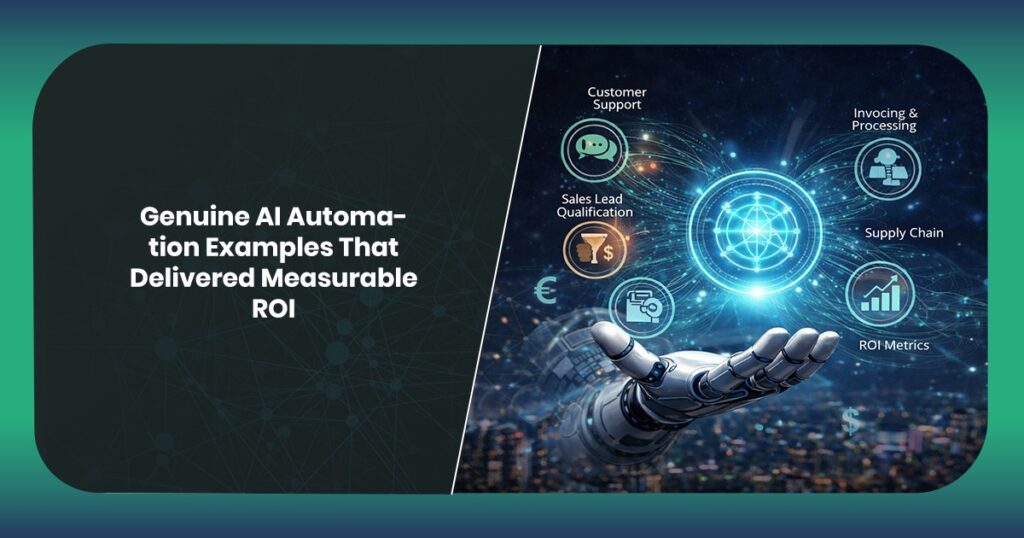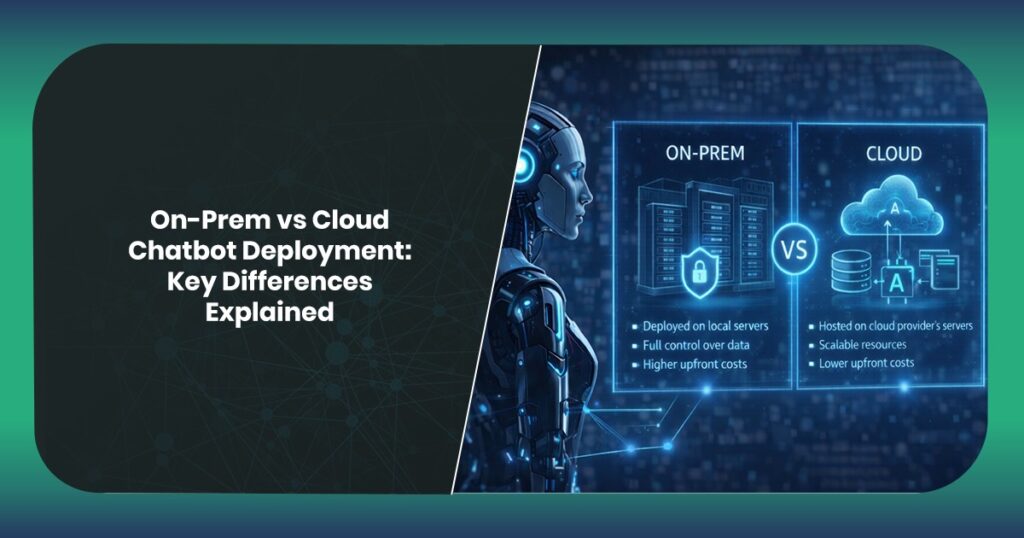Picking a software development firm sounds simple, until you realize the stakes. One wrong choice, and months of work, thousands of dollars, and your team’s sanity could go down the drain. How do you separate hype from reality? Who can actually turn your vision into software that works, scales, and lasts? Choosing the right partner is a make-or-break moment for your business.
In 2025, the global custom software development market is projected to reach $53.95 billion, growing at a compound annual growth rate (CAGR) of 21.2%.
Choosing a development partner isn’t merely about cost or timelines; it’s about aligning with a team that understands your unique challenges and can deliver solutions that drive growth. A misaligned partnership can lead to wasted resources, missed opportunities, and compromised quality. Conversely, the right firm can accelerate your time-to-market, enhance product quality, and provide scalable solutions that evolve with your business needs.
Why Picking the Right Custom Software Development Firm Matters in 2025
Choosing a custom software development firm can determine the efficiency, scalability, and long-term success of your software project. Firms differ in technical skills, delivery processes, and post-launch support, and these differences directly affect your ROI, speed-to-market, and system maintainability. Evaluating these aspects before committing ensures your business invests wisely in a partner capable of meeting current and future needs.
1. Strategic Investment vs Short-Term Savings
Selecting a firm based on low cost alone can create technical debt and maintenance challenges. Investing in a reputable enterprise software development company ensures robust architecture, quality assurance, and future-ready solutions. Research indicates that 70% of software failures result from poor planning or underqualified vendors, highlighting the risks of short-term savings.
2. Impact on ROI, Speed-to-Market, and Quality
A skilled bespoke software studio can accelerate project timelines, allowing faster product launches and better alignment with market opportunities. High-quality development reduces post-launch bugs, minimizes downtime, and enhances user satisfaction, all contributing to improved ROI.
3. Long-Term Agility from Scaling to Modernization
Modern businesses need systems that adapt to growth and changing requirements. Firms experienced in legacy modernization and scalable cloud software enable smooth updates and integrations over time. This ensures your technology remains flexible, reducing the costs and risks of future overhauls.
Core Criteria to Evaluate Bespoke Software Studios
Evaluating a bespoke software studio requires more than reviewing portfolios. You need to assess technical capabilities, process maturity, industry experience, and team dynamics. Each of these factors impacts your software’s scalability, security, and maintainability. Clear evaluation criteria prevent surprises during development and ensure alignment with business goals.
1. Technical Match
A competent firm should offer custom app development with API-first design and DevOps-based workflows. Full-cycle dev teams that manage planning, development, testing, and deployment reduce bottlenecks and improve accountability. Look for certifications, technology stacks, and demonstrated experience in building enterprise-ready systems.
2. Domain & Legacy Proficiency
Industry expertise ensures the firm understands complex business workflows. Firms skilled in scalable cloud software and legacy modernization can integrate with existing systems without disruption. Their experience in enterprise flows improves performance and reduces integration risks.
3. Security & Compliance
Security standards and compliance frameworks protect sensitive data. Confirm the firm follows regulations such as GDPR, SOC 2, or HIPAA if relevant. Explicit IP ownership agreements prevent disputes and safeguard your proprietary software.
4. Process Transparency
Transparency in development is essential for predictable outcomes. Firms that follow agile processes, regular reporting cadences, and thorough QA practices provide visibility into project progress, making it easier to manage timelines and resources.
5. Cultural Fit & Communication
Alignment in communication style, language, and working hours reduces friction. Teams that understand your company culture and collaborate proactively help maintain momentum and avoid misinterpretations during development.
6. Pricing Models, like Fixed Bid, T&M, Milestone-Based Contracting
Clear pricing structures help manage budgets. Evaluate whether fixed bid, time and materials (T&M), or milestone-based models suit your project. The right model balances risk and accountability, ensuring both parties agree on expectations upfront.
Vendor Types You’ll Encounter & Their Strengths
Understanding the types of custom software development firms helps match your project needs with the right provider. Firms vary in size, expertise, and delivery models, which affects timelines, flexibility, and support. Evaluating these types clarifies which structure aligns with your project scope and long-term strategy.
1. Boutique Studios: Suitable for Tailored, Fast-Moving Builds
Boutique studios specialize in bespoke software solutions with focused, hands-on attention. They excel at rapid development cycles and close client collaboration, making them suitable for projects that demand custom functionality and creative problem-solving.
2. Mid-Size Firms: Perfect for Balanced Delivery and Support Capabilities
Mid-size firms provide a mix of agility and resources. They can handle moderately complex projects while offering sufficient support and technical depth, often bridging the gap between personalized service and enterprise-level processes.
3. Enterprise Giants: Reliable for Bulk, Compliance, Structured Processes
Large firms bring extensive resources, structured workflows, and compliance rigor. They are ideal for large-scale projects requiring strict governance, extensive documentation, and the ability to deliver across multiple business units.
4. Off/Onshore Hybrids: Best for Cost-Effective Talent with Local Oversight
Hybrid models combine offshore development talent with onshore project management. This approach offers cost efficiency while maintaining clear communication, local oversight, and accountability for project milestones.
Amenity Technologies: Your Ideal Custom Software Development Firm
Selecting the right custom software development firm requires evaluating expertise, process transparency, and cultural alignment. Amenity Technologies demonstrates these qualities across multiple dimensions, ensuring projects meet technical requirements and long-term business objectives.
1. End-to-End Full-Cycle Teams from Prototype to Scale
Amenity Technologies provides full-cycle dev teams capable of taking projects from concept to deployment and scaling. This approach ensures continuity, reduces miscommunication, and accelerates delivery timelines.
2. Deep Stack Expertise
The team has extensive experience in backend development agencies, API-first developers, and scalable cloud software. This deep technical stack enables robust, efficient, and maintainable solutions tailored to enterprise needs.
3. Agile & Transparent
Agile processes and transparent reporting allow frequent checkpoints, ensuring alignment with business goals and consistent quality. Regular QA cycles reduce post-launch errors and support faster iterations.
4. Secure, Compliant, Future-Focused
Security, compliance, and modular design are central to the firm’s development approach. Solutions are built to scale, support future updates, and reduce technical debt, safeguarding business continuity.
5. Culture-Aligned Partnership
The firm emphasizes cultural alignment and communication, ensuring that teams collaborate efficiently. Their domain understanding improves decision-making and reduces friction during development.
Step-by-Step Process to Finalize Your Decision
Selecting a custom software development firm requires a structured approach to ensure alignment with business goals and technical needs. Following a clear process reduces risk and improves the likelihood of successful delivery.
Step 1. Define Scope.
Start by outlining essential features, integrations, and infrastructure requirements. A clear scope ensures the firm understands your priorities and helps avoid scope creep during development.
Step 2. Issue RFP/Request Info.
Provide detailed information in your request for proposal, including preferred technology stack, project context, and expected timelines. This ensures that responses are relevant and comparable.
Step 3. Score Proposals Based on Alignment, Deliverables, and Planning.
Evaluate proposals by assessing technical alignment, delivery approach, and project planning. Scoring objectively highlights firms capable of meeting both current requirements and long-term goals.
4. Conduct a Pilot or Trial Phase.
Conduct a small-scale pilot to test the team’s responsiveness, quality, and process adherence. Pilots provide insights into how the firm handles real-world challenges before committing to a full-scale project.
5. Ask for References.
Request references to verify past performance, problem-solving skills, and support quality. Insights from previous clients can reveal the firm’s reliability and flexibility in handling challenges.
Conclusion
Choosing the right custom software development firm in 2025 directly impacts your project’s success, scalability, and long-term business growth. Prioritize firms that combine technical expertise, clear processes, and strong communication.
Partnering with a team experienced in enterprise software development, bespoke software studios, and backend development agencies ensures your solutions are secure, scalable, and maintainable.
A well-chosen partner reduces risk, accelerates delivery, and supports innovation. The decisions you make now set the stage for future efficiency, growth, and technological resilience.
Firms like Amenity Technologies provide full-cycle dev teams, API-first microservices, and agile workflows, creating a foundation for reliable and adaptable software. So, connect with our experts today.
FAQs
1. What is a custom software development firm?
A custom software development firm builds software solutions specific to your business needs. They handle design, development, and deployment, often incorporating custom app development, API-first development, and cloud scalability to ensure the product aligns with operational and strategic goals.
2. Why does selecting the right firm matter more than cost?
Choosing based solely on price can compromise quality, scalability, and support. A reputable enterprise software development company delivers higher ROI, reduces maintenance issues, and ensures the solution grows with your business while meeting industry standards and compliance requirements.
3. What’s the benefit of a pilot phase?
A pilot phase tests the firm’s capabilities and process on a smaller scale. It validates responsiveness, collaboration, and solution quality, helping you make an informed decision before full-scale deployment and reducing risks associated with larger projects.
4. Should I prefer boutique studios or enterprise firms?
Bespoke software studios excel at rapid, customized solutions for specific requirements. Larger enterprise software development companies provide structured processes, compliance adherence, and resources for extensive projects. The choice depends on project complexity, delivery timelines, and scalability needs.
5. How do I ensure long-term maintainability?
Focus on firms that implement modular architecture, thorough documentation, and QA practices. Full-cycle dev teams following agile methods and coding standards improve maintainability, simplify updates, and ensure the software remains adaptable to evolving business requirements.
6. How do cultural fit and communication affect outcomes?
Strong cultural alignment and clear communication reduce misunderstandings, accelerate decision-making, and enhance collaboration. Firms with proactive communication practices and compatible working styles deliver smoother development processes and more predictable outcomes.











